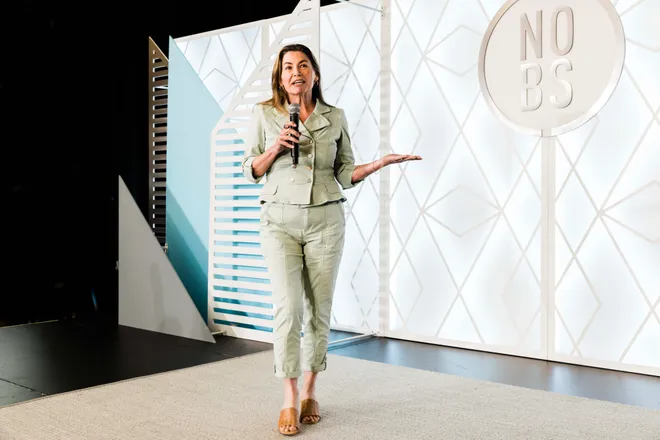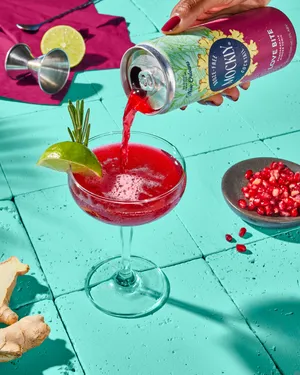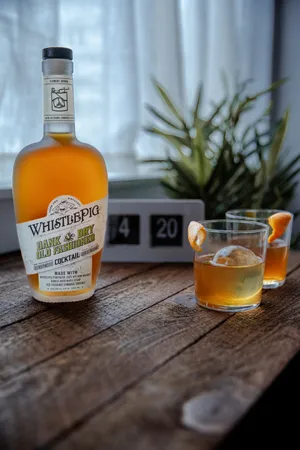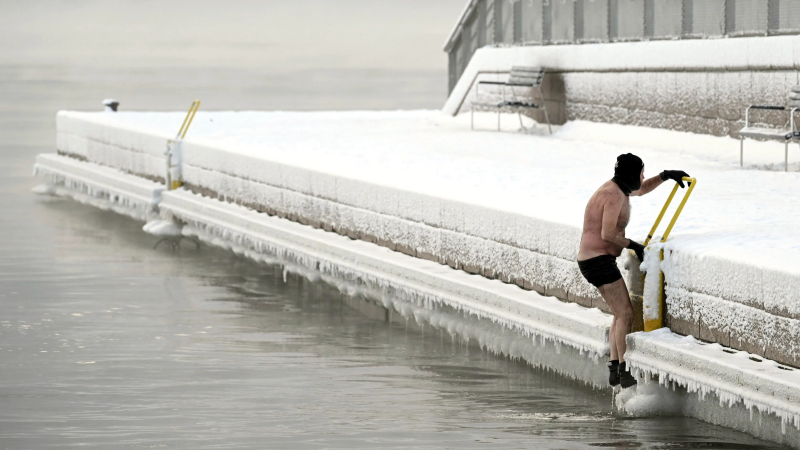Doing the Dry January challenge? This sober life coach has tips for how to succeed.
Dry January is a thing. But if you want to go a month without consuming alcohol, you need to prepare now.
Among imbibers, between 15% and 35% may participate in Dry January, which began in 2013 as a public health campaign from Alcohol Change UK, a charity focused on reducing the societal and health effects of alcohol.
Dry January participants take the 31-day challenge for many reasons, with better health the biggest factor – about 90% abstain seeking health benefits, according to research firm Morning Consult, which tracks Dry January trends. About 73% do it to save money, the firm's surveys found.
The success of Dry January, along with other alcohol-free challenges such as Sober October, may be leading to fewer participants as there may be fewer drinkers, overall. That's because those who observe Dry January are increasingly likely to drink less in subsequent months, Morning Consult found. Roughly 3 in 10 drinkers say they expect to drink less in 2023 compared with 2022.
What are the Dry January rules?What to know if you're swearing off alcohol in 2024

"Dry January is something that has gained a lot of popularity and there are a lot of positive outcomes that come from it," said Andrea Bell, a Bay Area life and health coach who runs a Dry January challenge at Oakland Hills Tennis Club in Oakland, Calif. "And there's a lot of momentum in the sober curious movement."
Along with interest in Dry January, there is, Bell said, "more of an openness to people living an alcohol-free lifestyle electively (and) …. more of a stigma attached to alcohol overuse than in the past."
Ready to take on the challenge? Here are Dry January benefits, tips and non-alcoholics drinks.
What are some benefits of Dry January
A month-long reprieve from alcohol can earn you some health benefits. Here's just some, according to The Cleveland Clinic, Alcohol Change UK, and UC Davis Health:
- Improved mood
- Better sleep
- Weight loss
- More energy
- Lower cholesterol
- Decreased diabetes risk
- Lower blood pressure
Tips for successfully doing Dry January
Whatever your reason for taking the Dry January challenge, here's some tips from Bell, who quit drinking alcohol in 2012, to help you succeed.
- Set a clear goal. "Are you doing this for specific physical benefits, mental health or emotional health? Or is there a personal reason (such as wanting) to challenge yourself to see if you can follow through on a plan for an entire month?" said Bell. Knowing what your intention is for doing the Dry January challenge will help you make it through the month.
- Plan ahead. Prepare yourself for social situations and travel or business occasions where alcohol might be involved. Have a plan for what you will order at a restaurant, for instance, when everyone is asked what they want to drink. Beyond water, tea and fountain drinks, you could consider a mocktail.
- Have an answer ready. You may want to be prepared to be asked why you're not drinking. Maybe it's that "I'm not drinking because I'm participating in Dry January" or "I'm not drinking because I'm working on improving my health and starting off 2024 feeling really strong'," Bell said. "It's unfortunate, but sometimes people do encourage others to drink."
- Have a support system. It's good to have someone to go through Dry January with, but even if you do it alone, tell your family and friends what you are doing "so they can support you," she said. Also, you may want to let your primary care doctor or other medical provider know you are doing Dry January. Heavy drinkers can experience withdrawal syndrome, according to the American Addiction Centers.
- Focus on self-care. During Dry January you may also want to add activities that promote "your well-being, that occupy your time and provide distraction, to reinforce your commitment to a healthier lifestyle," Bell said. That could be treating yourself to a walk or an exercise class. Or trying new healthy recipes for your meals.
- Track your progress. Try to keep a journal or use apps such as Reframe: Drink Less & Thrive or How We Feel: A Journal for Your Wellbeing to "document how you're feeling, physically and mentally, as the month progresses," Bell says. "Both of these apps have a community component, as well." Using a journal helps you celebrate your wins "no matter how small. Even if it's just getting through that one urge that you have, you know, when you get home from work, and you'd normally be pouring a glass of wine." For a visual reward, put a shiny stone or piece of polished glass into a Mason jar every day and you will have "a visual representation of your success," Bell said.
- Don't quit. Even if you planned to abstain from alcohol for 31 days, you could have a possible slip. "Say it is January 6th and you slip. Rather than seeing that as a failure, see it as a learning experience," Bell said. "Analyze what happened and extract the lessons from it, and use those as insights to adapt and improve your strategy moving forward. Don't let that one slip end the challenge for you. Keep on going and you'll feel so good about the fact that you did."
Mocktails and non-alcoholic drinks for Dry January
If you want to go alcohol-free for January – or have another booze-free option in your entertaining wheelhouse – there's a growing variety of mocktails, cocktails mixed without alcohol, and non-alcoholic beers and spirits.
Here's a few of the newer entries in the burgeoning non-alcoholic beverage market:

- Mockly. This New Orleans-based company's artisanal canned ready-to-drink mocktails currently come in three different flavors: Love Bite(Pomegranate Ginger Tonic), Eye Opener (Tangerine Basil Elixir) and Baron von Blue (Blueberry Rose Spritz). A new lower-sugar mocktail, Madam L'Orange is due out for Dry January, too. Many grocery stores have the drinks, but they are also available online ($15.99 for a 4-pack) and on Amazon ($18.50 for a 4-pack).
- LaCroix. You can make your own mocktails with LaCroix sparkling waters. Among the recipes on the drink's website is the Razz-Cranberry New Year New Sparkle made with Razz-Cranberry LaCroix, apple cider, cranberry juice and a squeeze of an orange.
- WhistlePig's Dank & Dry Old Fashioned Cocktail. This booze-free cocktail is made with reverse-distilled rye whiskey from the Shoreham, Vermont-based distillery. The Dank & Dry Old Fashioned Cocktail ($49.99 per bottle, or $64.20 for bottle with a cocktail smoking kit) is also made with terpenes – the chemical compounds in cannabis responsible for aroma and flavor – cultivated from cannabis grown in whiskey barrels. (The cocktail is non-psychoactive, WhistlePig says.)

A note of caution: Mocktails and non-alcoholic beverages can make "not drinking (alcohol) more attractive," Bell said. However, for some, having a cocktail glass or non-alcoholic beer "could be triggering and may encourage them to want a 'real' cocktail," she said. "So you have to know yourself."
Contributing: Kayla Jimenez, Claire Reed and Diana Leyva of the USA TODAY Network.
Follow Mike Snider on X and Threads: @mikesnider & mikegsnider.
What's everyone talking about? Sign up for our trending newsletter to get the latest news of the day

Disclaimer: The copyright of this article belongs to the original author. Reposting this article is solely for the purpose of information dissemination and does not constitute any investment advice. If there is any infringement, please contact us immediately. We will make corrections or deletions as necessary. Thank you.






